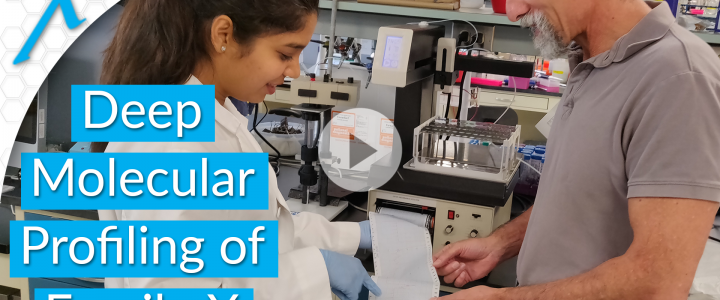FRAXA Research Foundation has awarded $90,000 to Dr. Joel Richter, Principal Investigator, and Dr. Sneha Shah, Postdoctoral Fellow, at the University of Massachusetts Medical School. They are using human induced pluripotent stem (iPS) cells to analyze gene expression in Fragile X syndrome.
Read moreAuthor: FRAXA Research Foundation
Targeting Mitochondria in Human Fragile X Syndrome Neurons

FRAXA Research Foundation has awarded a $90,000 research grant to principal investigator Dr. Xinyu Zhao and postdoctoral fellow Dr. Minjie Shen at the University of Wisconsin. They are investigating whether drugs which boost mitochondria — which provide the energy for cells — could treat Fragile X syndrome. Dr. Zhao explains in this video.
Read moreNH Fragile X Awareness Day Proclaimed at July Jam Fundraiser
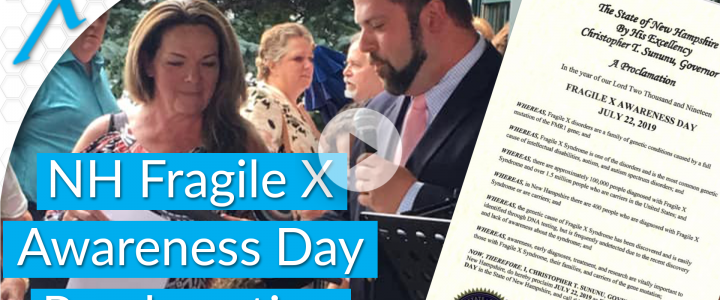
On July 22, 2019, the Fragile X July Jam in Derry, NH, raised over $6000 for FRAXA Research Foundation, to fund research to find effective treatments and ultimately a cure for Fragile X syndrome. Governor Chris Sununu’s policy director D.J. Bettencourt read an official proclamation calling for awareness of, and research on, Fragile X.
Read more20 Landmarks Will Light Up for Fragile X Awareness Day

Newburyport, MA (July 15, 2019) — Today, FRAXA Research Foundation announces that 20 buildings, bridges and landmarks across the United States and Canada will be illuminated teal on Monday, July 22, to celebrate International Fragile X Awareness Day. The goal of the initiative is to raise awareness of Fragile X syndrome, the most common inherited cause of autism and learning disabilities worldwide.
Read moreCorrecting Sensory Processing in Fragile X Mice by Modulating Kv3.1

FRAXA awarded a $90,000 grant to Carlos Portera-Cailliau, PhD and Nazim Kourdougli, PhD at UCLA to investigate whether a novel drug can rescue sensory processing deficits in Fragile X mice. People with Fragile X have similar problems in sensory processing. This new drug acts on Kv3.1, a promising Fragile X treatment target also being pursued by UK-based Autifony Therapeutics based on FRAXA-funded research done at Yale.
Read moreGene Therapy Translational Studies for Fragile X Syndrome

With this $90,000 award from FRAXA Research Foundation, Drs. Ernest Pedapati, Christina Gross, and student Lindsay Beasley will pursue preclinical gene therapy approaches using AAV (adeno-associated virus) vectors for treating Fragile X syndrome at Cincinnati Children’s Hospital. Dr. Craig Erickson elaborates about this in this video.
Read moreClinical Trial of Metformin for Fragile X Syndrome

Metformin is commonly prescribed to control high blood sugar in type 2 diabetes. With a $50,000 grant from FRAXA Research Foundation, Dr. Artuela Çaku and Dr. Francois LePage are conducting an open-label clinical trial of metformin for children and adults with Fragile X syndrome, at the University of Sherbrooke in Canada.
Read moreDevelopmental Profile of Glutamatergic Synapses in Fragile X
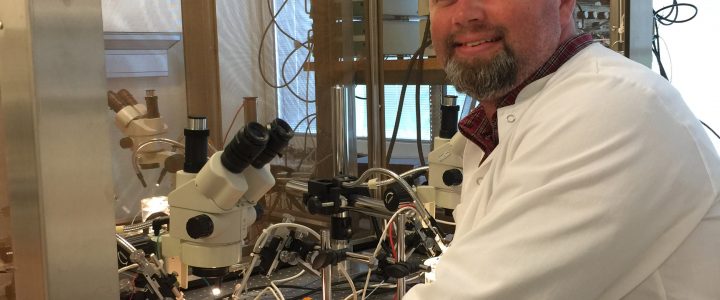
FRAXA Research Foundation awarded a $90,000 research fellowship to Dr. Tue Banke. With this award, Dr. Banke investigate how glutamate receptors at neuronal synapses – essential building blocks of learning and memory – are impacted in Fragile X syndrome.
Read moreReintroducing FMRP via Tat to Reduce Symptoms of Fragile X Syndrome
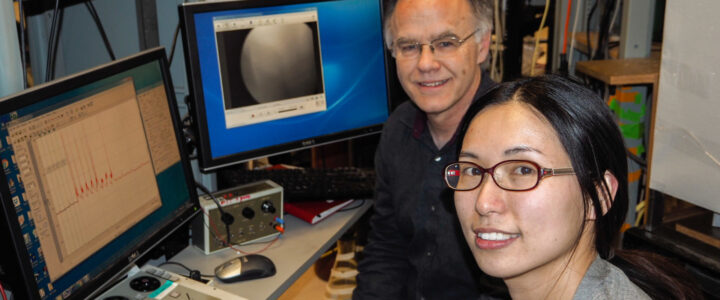
FRAXA Research Foundation and the Fragile X Research Foundation of Canada awarded a grant of $100,000 over two years to Dr. Raymond Turner at the University of Calgary in Alberta, Canada. Dr. Turner and postdoctoral fellow Xiaoqin Zhan, PhD are attempting to reactivate a segment of FMRP to reverse symptoms of Fragile X in a mouse model of the disease to reduce abnormal behaviors.
Read moreEnhancing NMDA Receptor Signaling to Treat Fragile X Syndrome

Dr. Stephanie Barnes investigated the role of NMDA receptors as a FRAXA Postdoctoral Fellow in Dr. Emily Osterweil’s laboratory at the University of Edinburgh from 2016-2018. With an additional year grant from FRAXA, she then continued her work to identify novel targets and test pharmacological therapies in the Fragile X mouse model at the Picower Institute at MIT with Dr. Mark Bear. Results published.
Read moreScreening 2,320 FDA-Approved Drugs for Potential Treatment of Fragile X

FRAXA Research Foundation has awarded a $90,000 grant to Principal Investigator Dr. Sean McBride and Postdoctoral Fellow Dr. Karen Joyce, at Rowan University, to screen all 2,320 FDA-approved drugs on both mouse and fly models of Fragile X syndrome. Those drugs which show promise will be tested in more detail for potential to treat Fragile X in humans.
Read moreKathan Pierce Honored as a New England Patriots Difference Maker

FRAXA is proud to announce that one of our board members, Kathan Pierce, was recognized by the NFL’s New England Patriots and team owner Robert Kraft for her tireless volunteerism. We are grateful for Kathan’s contributions to FRAXA, and to the Patriots, who announced they are also awarding a $5,000 grant to FRAXA to support Fragile X research.
Read moreNovel Modulators of Potassium Channels to Treat Fragile X

With funding from FRAXA over 2015-2017, the Yale University team of Leonard Kaczmarek, PhD showed that the firing patterns of auditory neurons in response to repeated stimulation is severely abnormal in Fragile X mice. Based on these results, they are collaborating with the UK-based company Autifony to develop advanced compounds which may reverse these deficits.
Read moreTetra Announces $40M to Advance BPN14770 for FXS and Alzheimer’s Disease

Tetra Discovery Partners has signed a multi-part deal that could bring it up to $160 million, plus royalties, from Shionogi & Co, Ltd, a Japanese major research-driven pharmaceutical company. Tetra currently is conducting an investigational Phase 2 study of BPN14770 in adults with Fragile X Syndrome, an indication for which BPN14770 has received Orphan Drug Designation from the US Food and Drug Administration. This clinical trial was made possible by early work with the FRAXA-DVI and over $200,000 from FRAXA.
Read moreMeet Charlie!
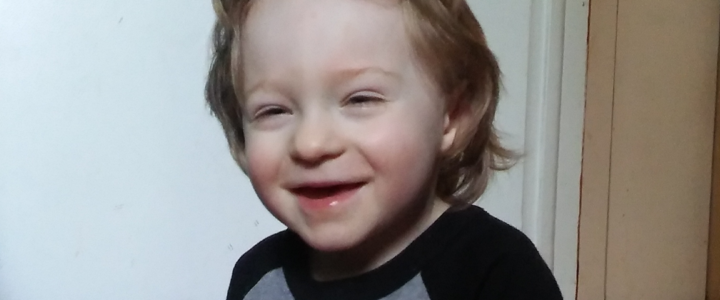
Meet #FriendofFRAXA Charlie! If you would like to nominate someone as a #FriendofFRAXA, we welcome all who have been touched by Fragile X, including friends, grandparents, siblings, professionals and companions alike to become a #FriendofFRAXA with the goal of putting a face to Fragile X for those who may not know someone directly.
Read moreHope for the Holidays Gala Helps Advance Fragile X Research

On December 8, 2018, a sold-out crowd of 250 people gathered for the 3rd Annual Hope for the Holidays Gala at the Café Escadrille in Burlington, MA, to raise funds for Fragile X research. For the third year in a row, the Pierces presented a check for $100,000 to FRAXA Research Foundation. We are truly grateful for this ongoing, generous support of our mission to find effective treatments and ultimately a cure for Fragile X.
Read moreCoffee, Tea, and Chocolate: Adenosine Receptors in Fragile X

Caffeine is the most popular smart drug in the world. With a $90,000 grant from FRAXA Research Foundation, Alberto Martire, PhD and Antonella Borreca, PhD in Rome, Italy are investigating adenosine receptors antagonists to treat Fragile X syndrome. Compounds which are able to block adenosine receptors are commonly found in tea, chocolate, and coffee.
Read moreContacting Your Member of Congress to Advocate for Fragile X Research

Important information about how best to contact your Member of Congress in support of Fragile X advocacy, including tips, recommendations, best practices and how to get contact info for your state senators and representatives.
Read moreMeet Emily!

Meet #FriendofFRAXA Emily! If you would like to nominate someone as a #FriendofFRAXA, we welcome all who have been touched by Fragile X, including friends, grandparents, siblings, professionals and companions alike to become a #FriendofFRAXA with the goal of putting a face to Fragile X for those who may not know someone directly.
Read moreFinding Fragile X Biomarkers – From Transcriptomics to Behavior in Patients

With this $20,000 award from FRAXA Research Foundation, Dr. Vanderklish and collaborators at Scripps Research Institute, the University of Chile, and the FLENI Institute in Argentina are analyzing patterns in gene expression in blood cells of patients with Fragile X syndrome. They are using “transcriptomics” which can produce a time-sensitive signature of an individual person. This is the first time that all these different levels of study – from transcriptomics to behavior – have been done for individual patients with Fragile X.
Read moreResearch Points to Drugs which Inhibit PDE to Treat Fragile X

FRAXA Research Foundation funded a grant of $90,000 over 2016-2018, for a postdoctoral fellowship for Thomas Maurin, PhD, working under the mentorship of Dr. Barbara Bardoni at INSERM in France. The team works on the biochemistry of the Fragile X protein. They have found that PDE inhibitors (a class of drugs) show promise as treatments for Fragile X syndrome. In related research, FRAXA is currently funding a clinical trial of PDE4D inhibitors.
Read moreMetformin and Aberrant Insulin Signaling in a Fragile X Mouse Model
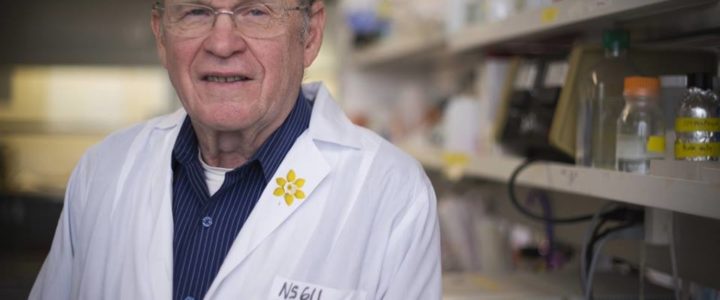
This 2017-2018 grant of $90,000 is funded jointly by FRAXA and the Fragile X Research Foundation of Canada for the first year. A previous FRAXA grant to the Sonenberg lab has led to great interest in the available drug, metformin, as a potential treatment for Fragile X syndrome. FRAXA is currently organizing clinical trials of metformin.
Read moreFragile X Brothers Two of the Pittsburgh Synagogue Massacre Victims

Our hearts are broken for everyone affected by the horrible tragedy at the Tree of Life synagogue in Pittsburgh. This one hits very close to home as two of the victims, the Rosenthal brothers, Cecil and David had Fragile X syndrome.
“Cecil’s laugh was infectious,” said Chris Schopf, Achieva’s vice president of residential supports. He added, “David was so kind and had such a gentle spirit. Together, they looked out for one another. They were inseparable. Most of all, they were kind, good people with a strong faith and respect for everyone around.”
Read moreMeet Andy!

Meet #FriendofFRAXA Andy! If you would like to nominate someone as a #FriendofFRAXA, we welcome all who have been touched by Fragile X, including friends, grandparents, siblings, professionals and companions alike to become a #FriendofFRAXA with the goal of putting a face to Fragile X for those who may not know someone directly.
Read moreKathan Pierce Named Patriots Difference Maker of the Week!

FRAXA Board Member and co-founder of The Pierce Family Fragile X Foundation, Kathan Pierce, has been named this week’s 2018 Patriots Difference Make of the Week! This honor is given by the NFL’s New England Patriots Foundation.
Read more
